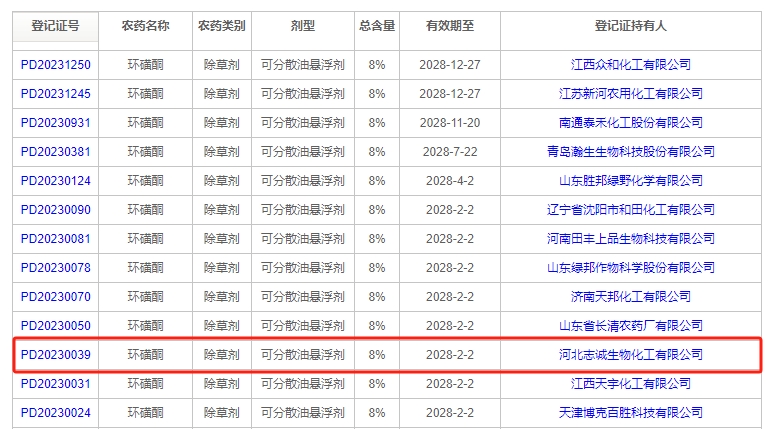
Dec . 26, 2024 12:28 Back to list
wholesale mesotrione sc
Exploring Mesotrione A Key Player in Wholesale Herbicide Markets
Mesotrione, a selective herbicide, has garnered significant attention in the agricultural and chemical industries for its effectiveness in controlling a wide range of broadleaf weeds and some grasses. As farming practices evolve and the demand for efficient weed management strategies increases, wholesale mesotrione has become a focal point for suppliers, manufacturers, and farmers alike.
Understanding Mesotrione
Mesotrione belongs to a class of herbicides known as HPPD (4-hydroxyphenylpyruvate dioxygenase) inhibitors. It operates by inhibiting a specific enzyme, disrupting the production of carotenoids, which are essential for photosynthesis and growth in plants. Consequently, affected plants are unable to thrive, leading to their eventual death. This selective action allows mesotrione to effectively target weeds while sparing desirable crops, such as corn, which has made it an invaluable tool for farmers.
Applications in Agriculture
In wholesale markets, mesotrione is typically offered in various formulations, allowing for flexibility in application. Its primary use is in corn farming, where it is often applied pre-emergence or post-emergence. By controlling weeds early in the planting season, farmers can reduce competition for nutrients, water, and light, thereby enhancing crop yields.
Additionally, mesotrione is beneficial due to its residual effects, which can help manage weed populations throughout the growing season. This long-lasting activity makes it a popular choice for many agronomists and farmers looking to optimize their weed management practices.
wholesale mesotrione sc

Market Dynamics and Trends
The wholesale market for mesotrione is influenced by numerous factors, including agricultural trends, regulatory changes, and shifts in consumer preferences. With an increasing global focus on food security, the demand for effective crop protection products like mesotrione is expected to rise. Furthermore, as farmers seek to adopt sustainable agricultural practices, the use of herbicides that minimize environmental impact will likely drive the wholesale market.
Moreover, the rise of integrated pest management (IPM) strategies is reshaping the way mesotrione is used. By combining chemical applications with cultural and mechanical methods, farmers can enhance overall effectiveness while reducing the dependency on herbicides. This approach not only promotes sustainability but also helps mitigate issues related to herbicide resistance.
Regulatory Considerations
Like many agricultural chemicals, the use of mesotrione is subject to stringent regulatory standards. It is critical for wholesalers and manufacturers to stay abreast of these regulations, as compliance is vital for product safety and marketability. In various regions, there is a growing emphasis on the environmental impact of herbicides, leading to more rigorous evaluation processes prior to approval for use in agriculture.
Conclusion
Wholesale mesotrione presents a compelling opportunity within the agricultural chemical market. Its effectiveness in managing weeds, coupled with the growing demand for sustainable farming practices, positions it as a crucial tool for farmers across the globe. As stakeholders navigate the complexities of regulations, market trends, and evolving agricultural practices, the future of mesotrione in the wholesale sector looks promising. By leveraging its benefits while addressing environmental concerns, the agricultural community can harness mesotrione to bolster crop production and contribute to global food security. The dynamic nature of this market ensures that mesotrione will continue to play a significant role in helping farmers meet the challenges of modern agriculture.
-
Azoxystrobin: Broad-Spectrum Fungicide Solutions
NewsAug.11,2025
-
Best EPA Boscalid: Superior Crop Fungicide for Max Yields
NewsAug.11,2025
-
Best Willowood Imidacloprid: Superior Pest Control Solutions
NewsAug.10,2025
-
Best EPA Boscalid Fungicide: Ultimate Crop Protection
NewsAug.09,2025
-
Cyprodinil Fungicide: Broad-Spectrum Crop Protection
NewsAug.08,2025
-
Tembotrione Herbicide: Advanced 8% OD for Broad Spectrum
NewsAug.07,2025
